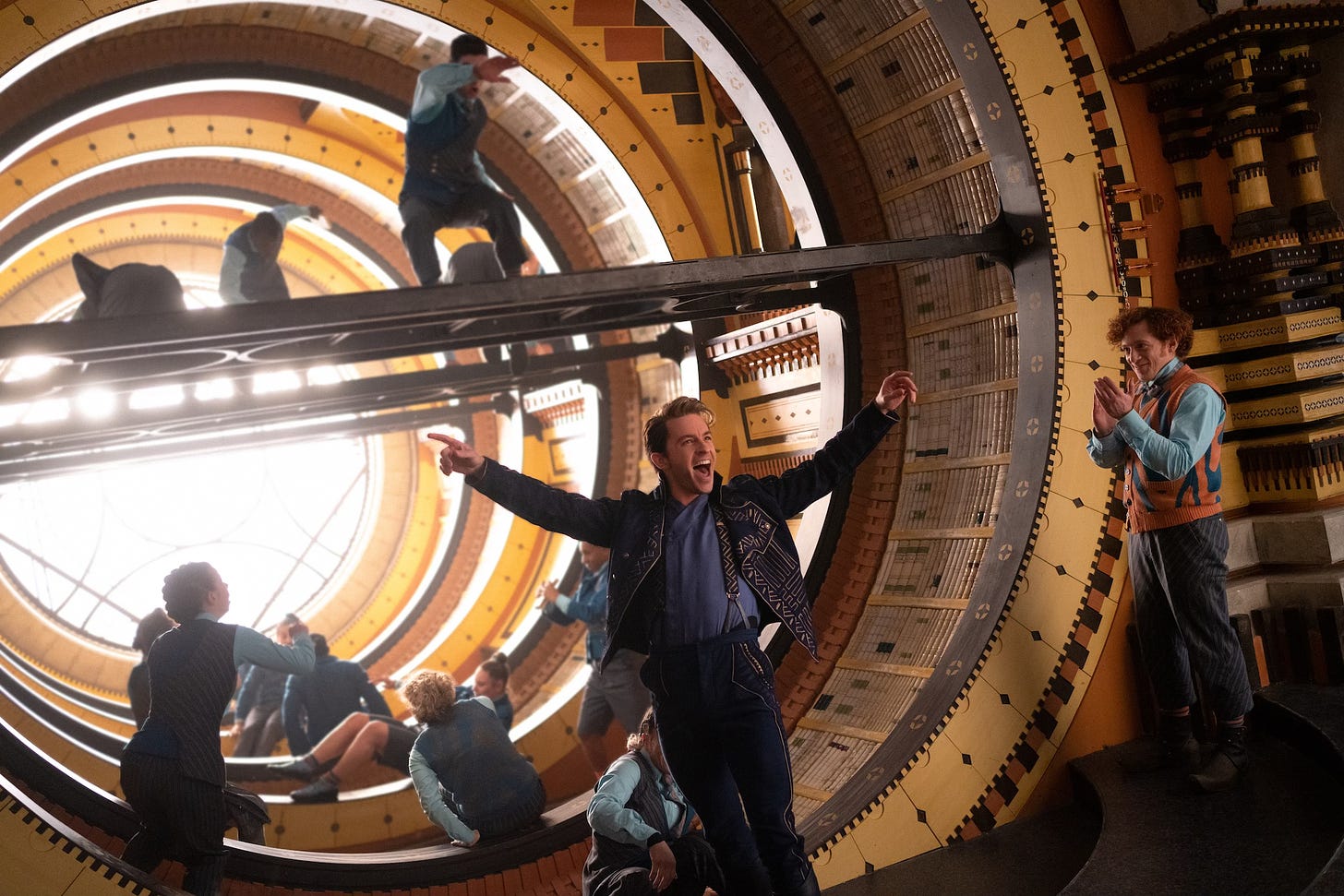Wicked is a big hit. The film is a success with critics and at the box office. While we’ve had good musicals in theaters in recent years, like Steven Spielberg’s new adaptation of West Side Story and Jon M. Chu’s version of In the Heights, Wicked is among the more popular Broadway shows to come to theaters and one with the benefit of people knowing the songs. And because people know the songs, they feel compelled to sing along.
I can’t believe I have to say this, but this is poor theater etiquette, and you shouldn’t sing along to the movie unless you’re at a special sing-along screening. Why not? You paid for a ticket, after all. But your ticket is part of a social contract. Buying a ticket does not entitle you to any behavior you can think of. You paid to watch the movie, not participate in it. No one bought a ticket to hear you sing. No one bought a ticket to see you perform. They bought a ticket to see professional actors perform in the expensive movie. Furthermore, you’re not at a concert—we can all hear you. We don’t want to, but we can.
This all seems pretty straightforward. Theater conduct is not that oppressive. You show up, put your phone away, and stay quiet. You can laugh at jokes or maybe whisper to your seatmate, but that’s about it. So why is this so difficult? Why do people think they can sing along?

Part of it is the atomization of society, where every institution and business stresses to us how much we’re on our own. Technology has created an on-demand existence, and the pandemic erased social constructs that were already rapidly deteriorating. If there’s a global pandemic of life-and-death stakes where the government’s messaging boils down to, “Put on a mask or not, but hey, it’s up to you because no one should ever tell you what you owe to strangers.” If that’s what we’re told during a pandemic, then why would anyone consider the theatergoing experience when they don’t consider health and safety?
Movies are a communal experience. We all have to sit together in the dark and pretend that the images unfolding before us are real. It’s both a miracle of the 20th century and also as primal as sitting around a fire listening to a story. I don’t know if Homer had to put up with people giving feedback in the middle of relating The Odyssey, but the concept of a movie is we all listen to the story together. There are audience participation exceptions like Rocky Horror Picture Show, but when it comes to movies, the whole point of being in the audience is the “Audire-” part—to hear.
Sadly, this has been lost on some people, and it’s not great when movie stars reinforce bad behavior. When asked about people singing, Dwayne Johnson told the BBC, “Sing! You’ve paid your hard-earned money for a ticket, and you’ve gone into a musical, and you’re into it. Sing.” Setting aside how I’m pretty sure Johnson has never been to a Broadway show, I’m pretty sure the etiquette still applies in the exchange of goods and services. More frustrating is when Wicked star Cynthia Erivo agreed with Johnson. “Good! I’m OK with it,” Erivo said at the Macy’s Thanksgiving Day Parade when asked about people singing during the movie. “We’ve spent this long singing it ourselves; it’s time for everyone else to join in.”
I understand that Johnson and Erivo are movie stars, and they don’t want to come off as the fun police. People who buy tickets to movies are customers, and customers are supposed to always be right, especially when theatrical attendance is declining. But part of the reason attendance is declining is because too many patrons treat theaters like their living rooms, which sends the message that you may as well stay home. Letting people behave however they want at the theater defeats the purpose of going to the theater. If I want to go to karaoke, I’ll go to karaoke.
Perhaps some will think I’m being a spoilsport and that people singing at Wicked are just having a good time. But this assumes that the only way to enjoy a musical is to sing along with it, which is ridiculous. Instead, singing during the movie feels like a larger societal symptom of people being incensed at the notion they may have to hold space not just for their desires but for other people.




